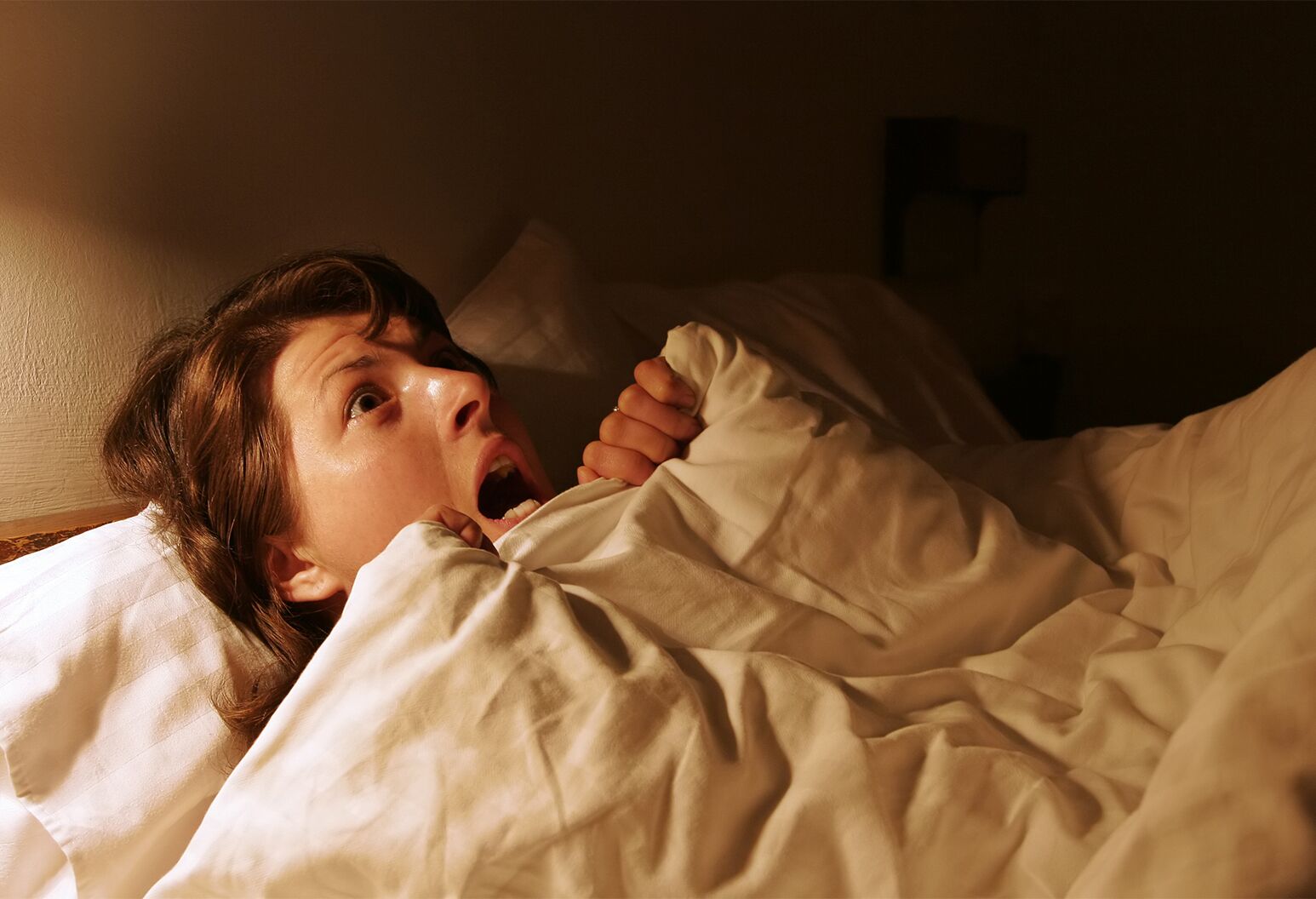Insomnia Leading to Psychosis

How Unaddressed Sleep Deprivation Leads to Catastrophe
The relationship between chronic sleep deprivation and psychological deterioration represents one of the most compelling areas of psychological sleep research.
This article examines how persistent insomnia can gradually erode the foundations of perceived reality, leading to states of acute psychosis that challenge our understanding of human consciousness and mental stability.
The Neurological Cascade
When sleep patterns fragment, the brain undergoes progressive neurochemical and bioelectrical dysregulation. The delicate balance between dopamine, serotonin, and norepinephrine neurotransmitter and EEG systems becomes increasingly unstable. This instability initiates a cascade of neurological events that mimic aspects of psychotic disorders, creating a fascinating parallel between sleep deprivation and natural psychotic states.
After 72 hours without sleep, the architecture of consciousness begins to show structural instabilities. Reality testing, the brain’s ability to distinguish between internal and external stimuli, becomes increasingly unreliable. The barriers between subjective perception and objective reality start to blur, much like the early stages of a psychotic break.
Historical Perspectives
Throughout history, cultures worldwide have recognized the profound connection between sleep deprivation and altered states of consciousness. Ancient Persian texts describe the “night’s poison” that accumulated in those who couldn’t sleep, eventually leading to what they termed “waking dreams.” Victorian-era physicians documented cases of “sleep madness,” particularly in industrial workers forced into irregular sleep patterns by demanding factory schedules.
Stages of Deterioration
The progression from insomnia to psychosis typically follows a predictable pattern:
Stage 1: Initial Sleep Loss (24-48 hours)
- Cognitive processing begins to slow
- Minor perceptual distortions emerge
- Emotional regulation becomes unstable
Stage 2: Deep Sleep Debt (48-72 hours)
- Reality testing becomes unreliable
- Time perception distorts significantly
- Paranoid ideation begins to manifest
Stage 3: Critical Phase (72-96 hours)
- Hallucinations become prominent
- Delusional thinking emerges
- Personality changes accelerate
Stage 4: Psychotic Break (96+ hours)
- Full disconnection from reality
- Complex delusional systems form
- Severe behavioral dysregulation
The Neurochemical Storm
As insomnia persists, the brain enters what researchers term a “neurochemical storm.” This state is characterized by:
- Dopamine supersensitivity
- Serotonin depletion
- GABA system dysfunction
- Glutamate excitotoxicity
These chemical imbalances create a self-perpetuating cycle where the inability to sleep further destabilizes the systems necessary for sleep initiation, creating a dangerous feedback loop.
Perceptual Anomalies
One of the most troubling aspects of sleep deprivation-induced psychosis is the progression of perceptual anomalies. Initially subtle, these distortions evolve into complex hallucinations that share remarkable similarities with schizophrenic episodes:
Visual Distortions
- Shadow people in peripheral vision
- Geometric Patterns Overlaying Reality
- Complex scenic hallucinations
Auditory Phenomena
- Whispered voices in white noise
- Musical patterns in ambient sounds
- Direct auditory hallucinations
Temporal Disruption
- Time dilation/compression
- Déjà vu experiences
- Prophetic sensations
The Role of Circadian Rhythm Disruption
The breakdown of natural circadian rhythms plays a crucial role in the development of psychotic symptoms. The body’s internal clock, when severely disrupted, loses its ability to regulate:
- Hormone production cycles
- Neural repair mechanisms
- Cognitive reset processes
- Reality testing functions
The Vulnerability Window
Research indicates a critical “vulnerability window” between 72 and 96 hours of sleeplessness where psychotic symptoms become increasingly likely to manifest. During this period, the brain exhibits patterns remarkably similar to those seen in acute schizophrenic episodes:
- Decreased prefrontal cortex activity
- Hyperactive limbic system
- Disrupted default mode network
- Altered sensory processing
Recovery and Healing
The path back from sleep deprivation psychosis requires careful management and understanding of the brain’s recovery mechanisms. The healing process typically involves:
Immediate Interventions
- Controlled sleep environment
- Neurochemical stabilization
- Sensory regulation
Long-term Recovery
- Circadian rhythm restoration
- Sleep architecture rebuilding
- Cognitive rehabilitation
Early Intervention Through Neurofeedback
Recent advances in neurofeedback technology offer promising avenues for early intervention in chronic insomnia patterns before psychotic symptoms emerge. By monitoring real-time brainwave activity, particularly in the theta and delta ranges associated with sleep onset, neurofeedback protocols can help retrain disrupted sleep architecture.
The process provides immediate feedback on brain activity patterns that inhibit healthy sleep initiation. An individual’s brain learns to recognize and modify neurological states using advanced EEG amplitude training, effectively “rewiring” its global or holographic homeostasis.
This neuroplastic approach has shown remarkable success rates. Studies have indicated that it can improve sleep scores by up to 85% when implemented during the early stages of chronic insomnia.
Key to this approach is the identification of specific brainwave patterns that precede healthy sleep transitions. By strengthening these neural pathways through targeted feedback, individuals can rebuild their natural sleep architecture before severe disruption occurs. The process typically involves:
- Real-time brainwave monitoring during pre-sleep periods
- Visual or auditory feedback signals indicating optimal states
- Gradual conditioning of healthy sleep-onset patterns
- Integration with early-application sleep coaching
This intervention, when applied during the first signs of chronic sleep disruption, can effectively prevent the neurological cascade that leads to psychotic symptoms, offering a powerful tool for maintaining mental health through sleep regulation.
Prevention Strategies
Understanding the progression from insomnia to psychosis allows for the development of effective prevention strategies:
Early Recognition
- Monitoring sleep patterns
- Tracking cognitive changes
- Observing behavioral shifts
Intervention Techniques
- EEG monitoring
- Environmental modifications
- Stress management systems
The Future of Research
Current research directions focus on several promising areas:
- Biomarker identification for vulnerability assessment
- Novel intervention strategies
- Preventive protocols development
- Long-term impact studies
Conclusion
The progression from insomnia to psychosis represents a compelling example of the brain’s delicate balance between stability and chaos. Understanding this process illuminates the crucial role of sleep in maintaining mental health and provides insights into the nature of consciousness itself.
As research continues to unravel the complex relationship between sleep deprivation and psychotic states, we gain a deeper understanding of how to protect and maintain the delicate architecture of human consciousness. This knowledge is invaluable for treatment, prevention, and our fundamental understanding of the human mind’s remarkable resilience and vulnerability.
This exploration of insomnia-induced psychosis reminds us that the boundary between sanity and madness may be as thin as a single night’s sleep, highlighting the profound importance of maintaining healthy sleep patterns in our increasingly sleepless world.
References:
- Severe Sleep Deprivation Causes Hallucinations and a Gradual Progression Toward Psychosis With Increasing Time Awake. https://pmc.ncbi.nlm.nih.gov/articles/PMC6048360/#:~:text=Studies%20in%20schizophrenia%20and%20bipolar,insomnia%20(8%E2%80%9312).
- The Association between Sleep Problems and Psychotic Symptoms in the General Population: A Global Perspective. https://pmc.ncbi.nlm.nih.gov/articles/PMC4667394/
-
Sleep Is a Human Right, and Its Deprivation Is Torture. https://journalofethics.ama-assn.org/article/sleep-human-right-and-its-deprivation-torture/2024-10
-
Behavioral and Physiological Consequences of Sleep Restriction. https://jcsm.aasm.org/doi/10.5664/jcsm.26918

